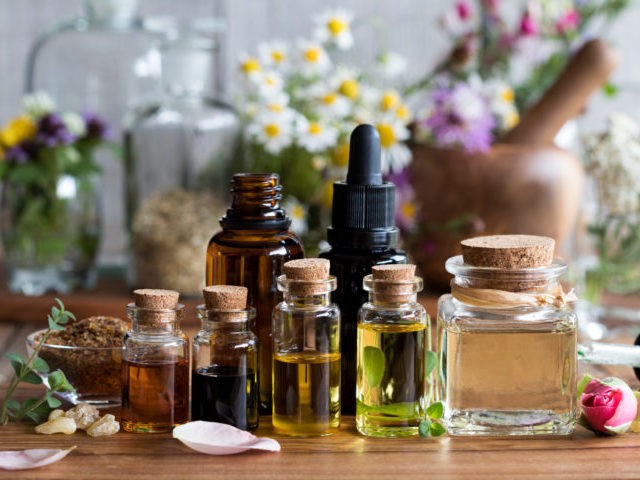The Centers for Disease Control and Prevention (CDC) identified the bacteria that causes melioidosis — an infection primarily found in Southeast Asia and northern Australia — in an aromatherapy fragrance bottle at the home of one of four Americans that contracted the infection this year.
Between March and July of 2021, four cases of melioidosis were confirmed in different parts of the United States, the CDC reports. Confirmed cases were reported in Georgia, Kansas, Minnesota, and Texas and resulted in the deaths of two of the four patients. The first case, which was reported in Kansas, and the last case, which was reported in Georgia, were both fatal.
Non-specific symptoms of the infection include weakness, fatigue, nausea, shortness of breath, and cough, according to CNN.
“Whole genome sequencing showed the strains of bacteria (Burkholderia pseudomallei) that sickened the patients closely matched each other, suggesting there is a common source of infection in these patients,” the CDC reports.
The infection is most common in Thailand, Malaysia, Singapore, and Northern Australia, according to the CDC. Melioidosis is mainly contracted during international travel, but no patients had a recent history of leaving the United States.
“The strain of bacteria that sickened the patients was similar to those found most often in South Asia, which led CDC to suspect that an imported product may have been involved in the patients’ illnesses,” the CDC stated in its report.
The CDC worked with state health departments to discover which imported product the bacteria came from, but CDC epidemiologist Dr. Jennifer McQuiston told CNN that the search was the equivalent to a “fishing expedition.”
“It really was a fishing expedition because we didn’t have any early clues to guide us in any direction,” McQuiston informed CNN.
“The teams really looked at personal care products, lotions, soaps, food items, vitamins — things they might have been exposed to,” McQuiston added.
The CDC was even looking at cleaning products in attempts to trace the origin of the disease.
“Cleaning products — all of those sorts of things. The thing about Burkholderia pseudomallei is it really needs a moist or wet environment in order to survive,” McQuiston told CNN. “It can survive in some types of moisture that you would not normally think of a bacteria surviving in, so even hand sanitizers.”
Earlier this month, the “CDC identified B. pseudomallei, which causes melioidosis, in an aromatherapy spray that was found in the home of the Georgia patient,” the CDC stated in its report.
“CDC is continuing testing to see if the genetic fingerprint of the bacteria in the bottle matches those of the bacteria identified in the four patients.” the report says.
The bacteria was found in a product called “Better Homes & Gardens Lavender & Chamomile Essential Oil Infused Aromatherapy Room Spray with Gemstones.” The CDC reports that it was sold in 55 of Walmart’s locations throughout the country and Walmart’s website between February and October of 2021 before the product was recalled. The fragrance was sold in five additional scents, which were also recalled, according to the report.
“CDC is coordinating with the state health departments to try to determine whether the other three patients may have also used this or similar products,” the CDC’s report says.
The CDC offers six recommendations for those who have the product in their homes:
- Stop using this product immediately. Do not open the bottle. Do not throw away or dispose of the bottle in the regular trash.
- Double bag the bottle in clean, clear zip-top bags and place in a small cardboard box. Return the bagged and boxed product to a Walmart store.
- Wash sheets or linens that the product may have been sprayed on using normal laundry detergent and dry completely in a hot dryer; bleach can be used if desired.
- Wipe down counters and surfaces that might have the spray on them with undiluted Pine-Sol or similar disinfectant.
- Limit how much you handle the spray bottle and wash hands thoroughly after touching the bottle or linens. If you used gloves while handling the bottling or cleaning, wash hands afterward.
- If you have used the product within the past 21 days and have fever or other melioidosis symptoms, seek medical care and tell your doctor you were exposed to the spray. If you do not have symptoms but were exposed to the product in the last 7 days, your doctor may recommend that you get antibiotics (post-exposure prophylaxis) to prevent infection.

COMMENTS
Please let us know if you're having issues with commenting.